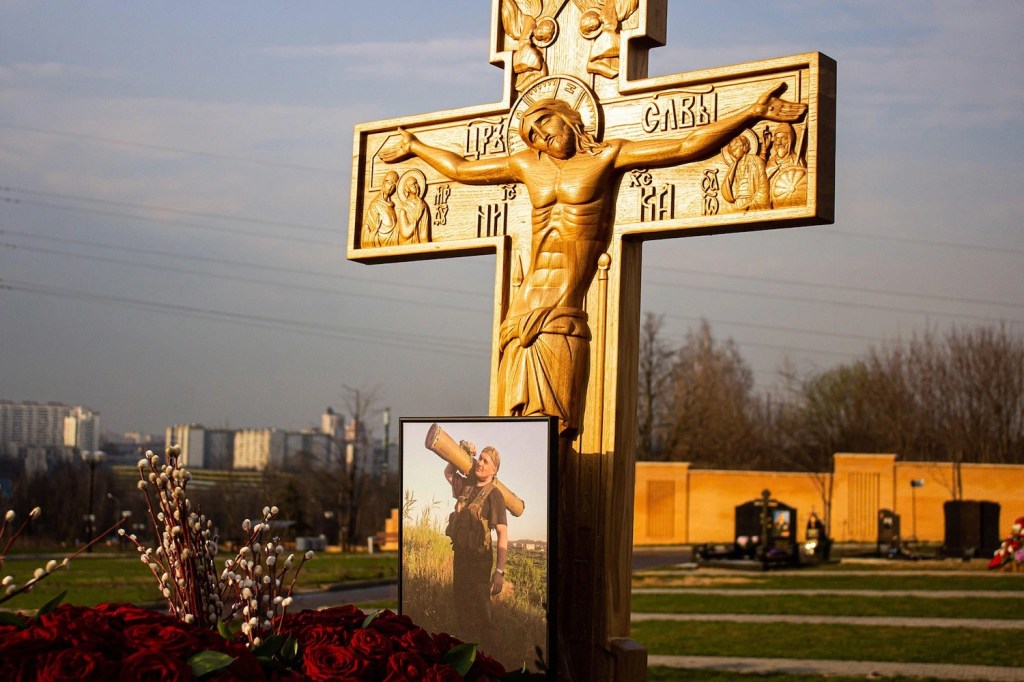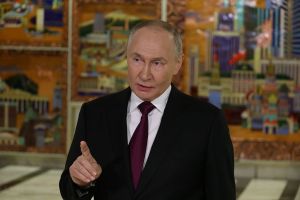After months of flat denials, the head of Ukrainian military intelligence has admitted that Kyiv is carrying out a campaign of sabotage and assassination inside Russia. But why change the official line now?
Even if this is a good cop/bad cop routine, it still risks embarrassing the president, raising questions as to how far he is fully in control of HUR
Major General Kyrylo Budanov, the head of the Main Directorate of Intelligence (HUR), has become one of the media stars of this war, not least thanks to an artfully curated public persona that a senior US intelligence official characterized as “George Smiley meets Jason Bourne.” This week he took advantage of interviews on two separate YouTube channels to acknowledge a Ukrainian role in a spate of recent attacks in Russia. He also announced that the Ukrainian parliamentarian Yevhen Shevchenko held secret negotiations with Belarusian president Alexander Lukashenko, on behalf of the intelligence agencies.
The attacks in Russia have ranged from the derailment of freight trains to bomb attacks on outspoken supporters of the war such as blogger Vladlen Tatarsky (killed in April) and author and militant Zakhar Prilepin (seriously injured earlier this month). It has long been presumed that HUR is the primary agency behind them, but until this month the agency had generally refused to confirm nor deny the truth behind the various allegations.
Then, though, Budanov told western journalists that “we’ve been killing Russians and we will keep killing Russians anywhere on the face of this world until the complete victory of Ukraine.” This statement, alarming many in western diplomatic and intelligence communities in its starkness — Budanov refused to qualify which Russians he considered a legitimate target — nonetheless failed to make that much of a splash. This might explain why he chose to double down, celebrating that “we have already gotten many [Russian targets], including public and media personalities” and claiming that the attacks were largely carried out “by citizens of the Russian Federation” happy to work with HUR for “patriotic reasons.”
Ukraine is stepping up its campaign of sabotage and assassination inside Russia, but Budanov is also no doubt continuing a campaign of psychological warfare. Although individual Russians have launched simple attacks such as fire bombings of draft offices (and there have been claims of wider networks of anarchists and oppositionists) the larger-scale and more complex operations bear the hallmarks of professionals. Some Russians have been duped or blackmailed into sabotage, but Budanov’s claims of a wider anti-Kremlin terrorist movement is likely intended to rattle the security agencies and perhaps trigger a counter-productive crackdown. This is, after all, the man who also said that a coup was underway in Russia to topple Putin and who has a map in his office of a dismembered Russian Federation.
Budanov’s words also contradicted President Volodymyr Zelensky’s own repeated assertions that, as he said in Berlin just a couple of days before Budanov’s interviews, “we are not attacking Russian territory.” To a degree this may well have always been disingenuous: leaked US intelligence documents (which have neither been confirmed nor denied) have Zelensky pondering seizing Russian border villages and even blowing up a pipeline taking Russian oil to Hungary.
Nonetheless, even if this is a good cop/bad cop routine, it still risks embarrassing the president, raising questions as to how far he is fully in control of HUR. According to the same trove of leaked documents, the CIA even had to intercede to get Budanov to stand down planned attacks on Russia on February 24, the anniversary of the invasion. As an EU official put it, “Zelensky should have been able to squelch these ideas without the Americans having to negotiate with Budanov directly.”
At thirty-seven, the youngest general in the Ukrainian military, and with a burgeoning personality cult to match his media profile — whenever there is some new disaster in Russia, social media abounds with images of him with glowing red eyes or grinning — Budanov is thought to have political ambitions for after the war.
Last year, there was talk of him replacing General Valery Zaluzhny, the head of the armed forces. A former special forces commando turned spymaster, now the avenging angel of the Ukrainian nation, it’s possible that Budanov is looking to a rather different campaign in the future, as well as his present one against Russia.
This article was originally published on The Spectator’s UK website.

























